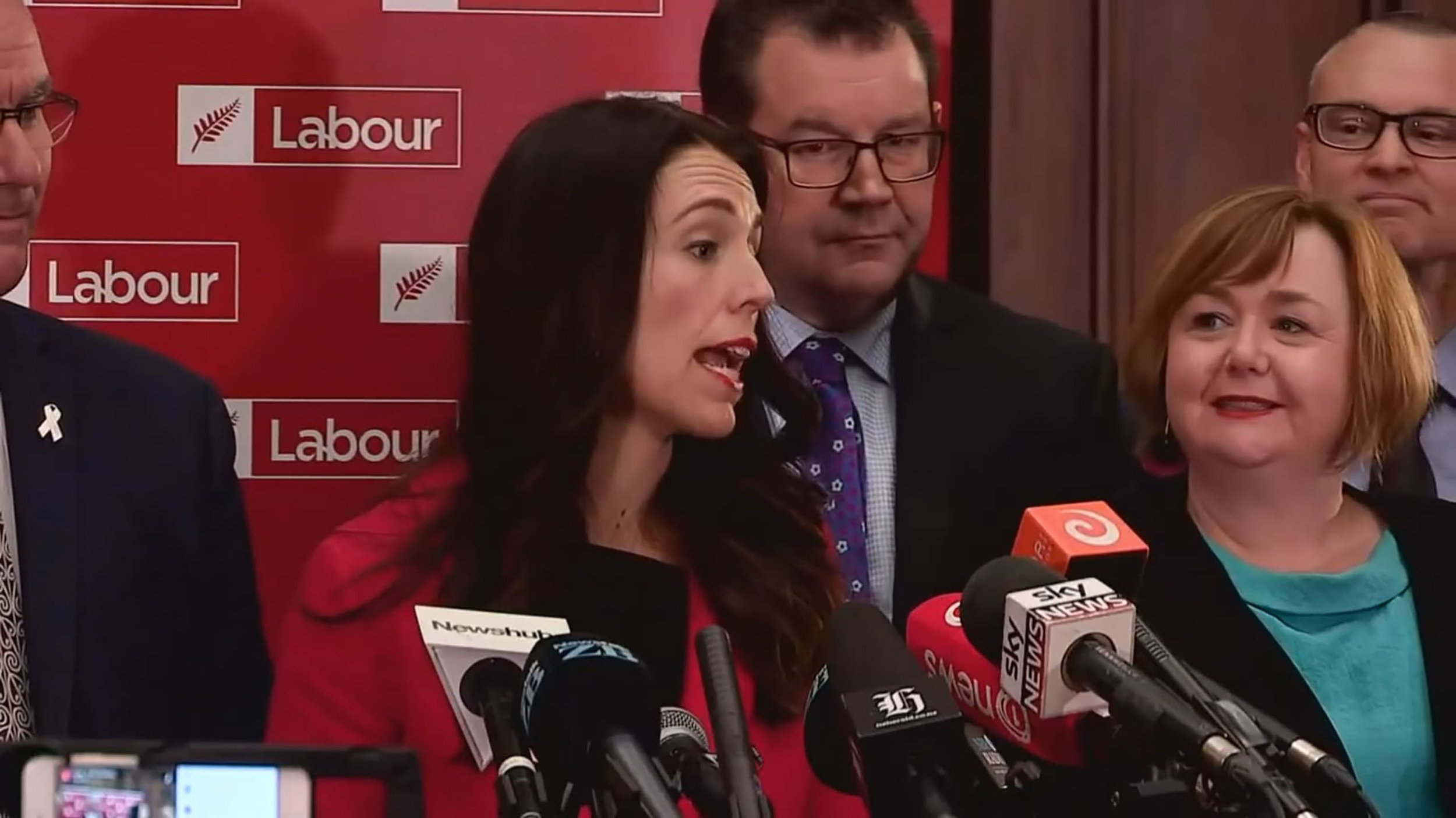Sundance 2025: The Dating Game, Prime Minister, How to Build a Library
The phrase “the personal is political” remains as true today as it did in its heyday. The statement from the second feminist wave of the 1960s highlights how incorrectly labeled “personal” problems may be traced to a political source. Many recent documentaries are making those connections, showing how politics has shaped people’s lives in both intended and unintended ways. Many of the documentary features in this year’s Sundance Film Festival lineup dig beyond headlines and assumptions to reveal more about a subject, the broader topic at hand, and perhaps the chance to learn more about ourselves in the process.
Jacinda Ardern appears in Prime Minister by Lindsay Utz and Michelle Walshe, an official selection of the 2025 Sundance Film Festival. Courtesy of Sundance Institute | photo by Radio New Zealand
In another part of the world, in 2017, New Zealand elected its 40th Prime Minister, Jacinda Ardern. Almost immediately, she became a notable figure on the world stage. She was young, a woman, and within a few months of assuming office, announced she was pregnant, becoming only the second leader in office to give birth. But it was her leadership style that truly turned heads, as she led with compassion and empathy, traits not often seen in other heads of state. After a harrowing massacre in Christchurch, she successfully campaigned to rid her country of assault weapons and semi-automatic guns. At a time when male leaders unleashed war against their neighbors and spoke like playground bullies, Ardern’s term was an astonishing rebuttal and proof that leadership could look like something we’ve rarely seen before.
Directors Michelle Walshe & Lindsay Utz’s film “Prime Minister” takes a fairly straightforward approach with a gentle touch. It’s a traditional kind of documentary, following Ardern’s journey into politics and her term as prime minister in mostly a chronological timeline. Through home movies filmed by Ardern’s husband and taped interviews she kept throughout her time in office, viewers get a behind-the-scenes look at the world leader as she pours over data and prepares her speeches. Ardern reflects on her time in office with a pragmatic perspective, musing at the whirlwind nature of moving so quickly from opposition party leader to leading the country, the heartbreaking crises she faced in just a few short years, and the media scrutiny she endured for simply being different.
It is in those moments that “Prime Minister” grows up from the standard biographical documentary to exploring the issues many women in leadership roles face: colleagues and outsiders questioning her capabilities, sexist comments about what she should or shouldn’t do as a leader and mother, and enduring misogynist harassment by protestors and dissenters. In a move of self-preservation for her and her government, she resigns, showing restraint that few other world leaders possess. Her success showed what women in power could do, but the backlash proved just how much further there is to go for equality.

